In this article, we will explain how to build a yurt and will explain about yurt life in Kyrgyzstan.
The Kyrgyz head to the mountains in summer. Nowadays, the Kyrgyz are semi-nomadic. They stay in the villages in winter, when it is too cold in the mountains, and in summer they get their things together and head to the jailoos (this is how they cal their summer pastures in the mountains). They do not go alone. They take their animals, including the cows, the sheep as well as the horses.
Their things include, obviously, their summer houses, the yurts, or as they call them in Kyrgyz, the boz-üi. Yurts need to be easily assembled and light, so that they can be easily taken by nomads on their transhumance. This is precisely how yurts are: their wooden structure is easily assembled and taken down, (such as a tent); their felt coverings are very light and easy to transport.
The wooden structure
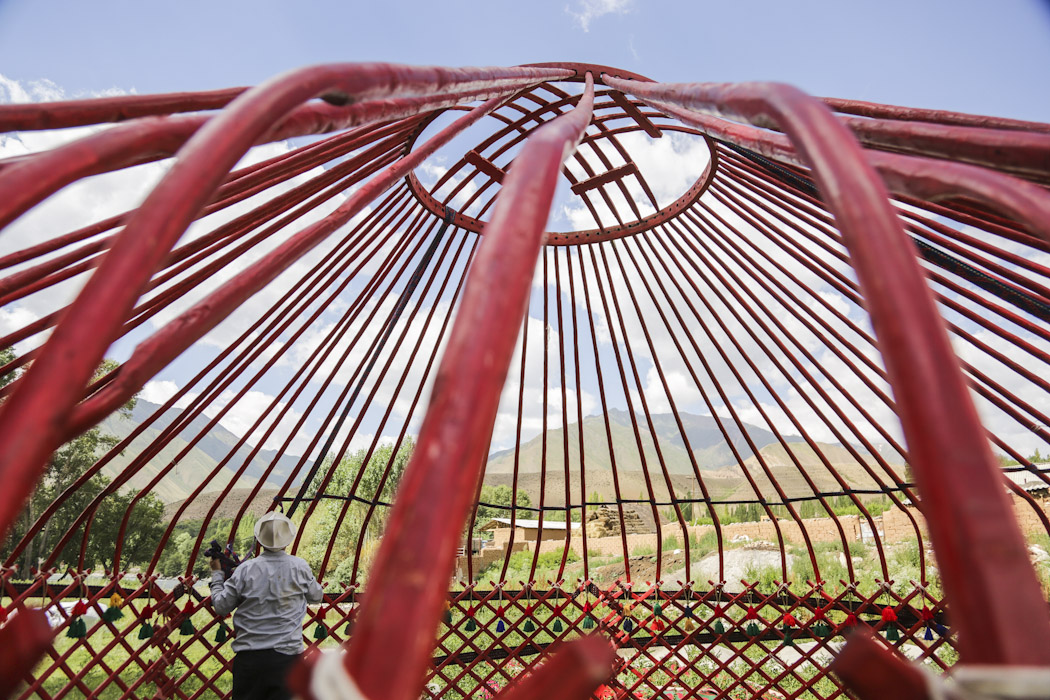
The frame of a yurt is circular and made of wood from the nearby forests. Nomads use the materials they have at hand, therefore it is not surprising that traditionally no nails were needed to assemble a yurt. The wall structure (called kerege) is an interlaced pattern, like a lattice, fixed with skin or rope.
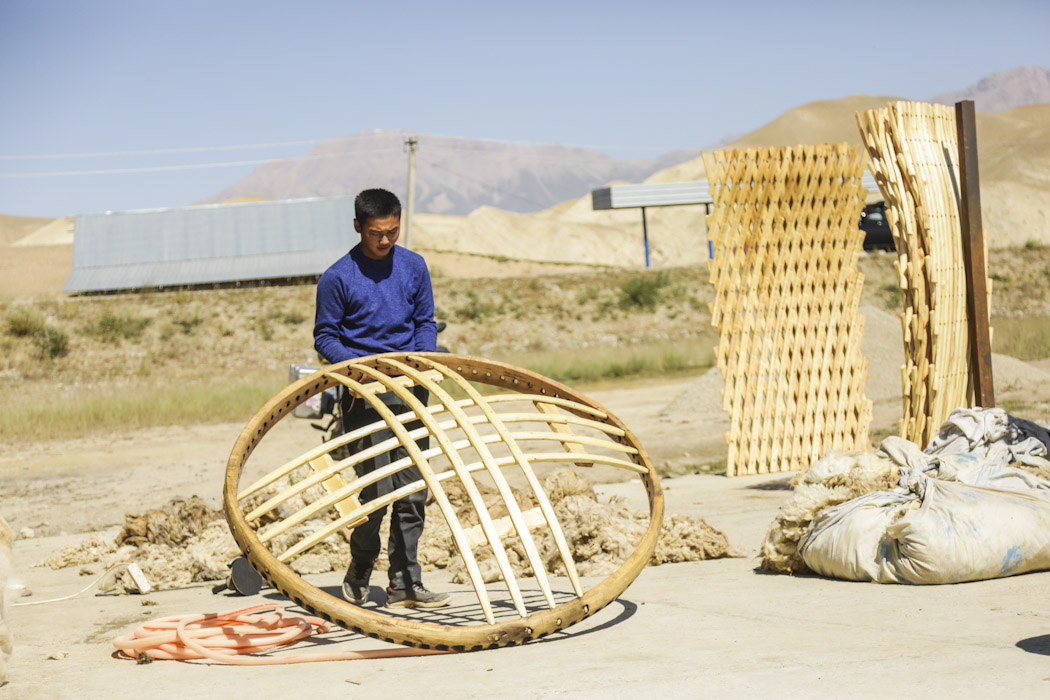
On top of it, the tündük. It symbolizes the family and the home, and is covered by a separate felt rug, in an ingenious mechanism with ropes, so that it can be easily opened and closed for light. A nomad family can assemble one yurt in a couple of hours only.
The felt covering
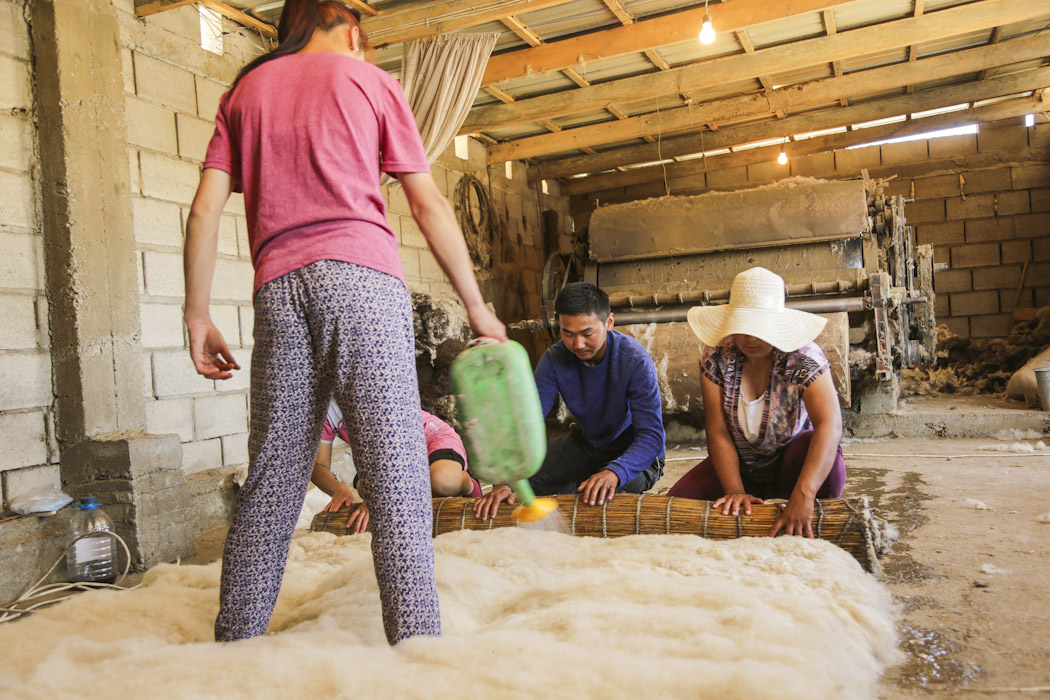
As soon as assembled, the yurt is ready to be covered by felt, which is a covering made of sheep wool. Felt makers press the wool in a machine (in former times they used to beat it with wires). Once the wool is soft, they lay three layers of this soft ’tissue’ on the ground and water it with hot water. Then the tissue is folded and pressed in a machine. In former times, people pressed it by foot, while dancing. It is said, that the dancing was important to give good energy to the felt.
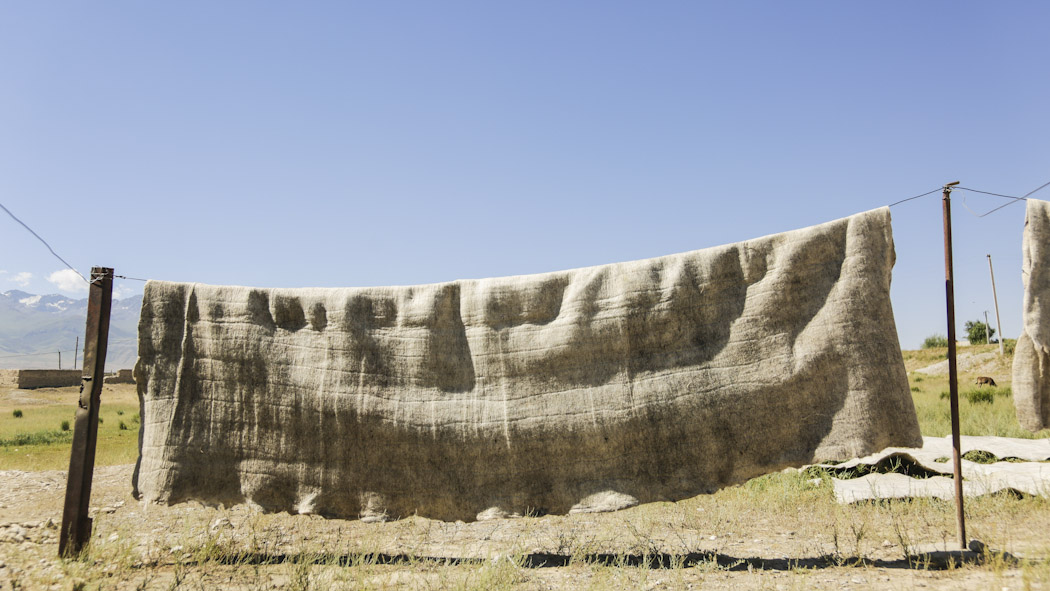
Once pressed, the felt is left in the sun to dry for a couple of days. It is necessary to have twenty kilos of sheep wool to make one such covering. To cover one yurt, at least fourteen coverings are needed. A yurt can cost between 3 to 4,000 dollars (the smaller versions), and the prettiest and largest can cost 5 to 6,000 dollars.
Inside the yurt
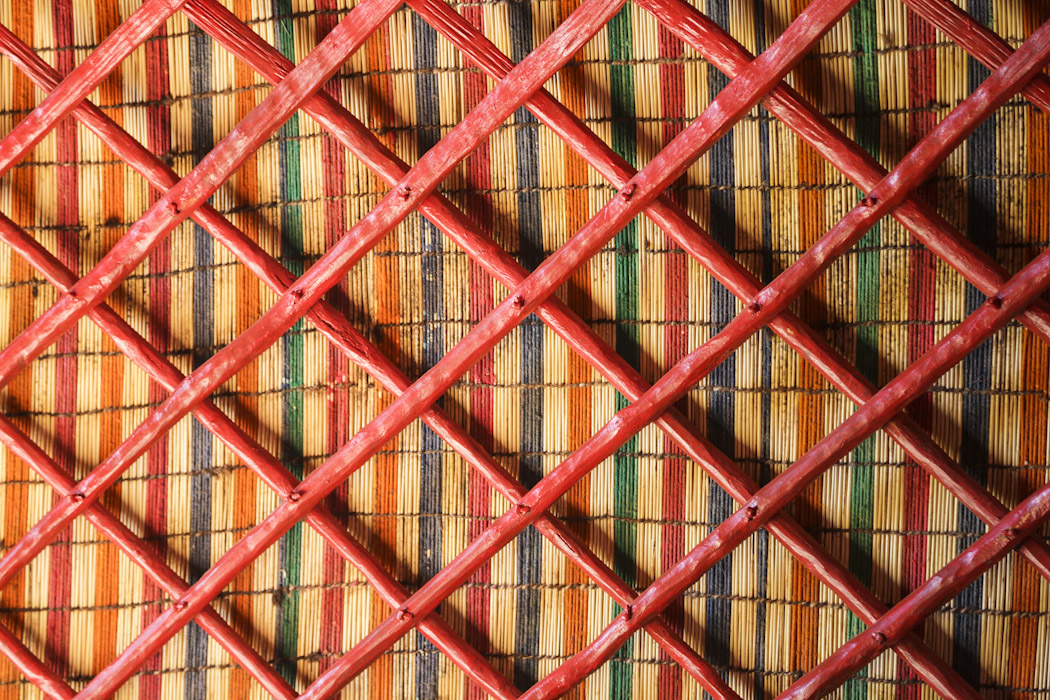
While the felt outside is left in its original grey colour, inside the felt rug layers are colourful and cozy. The walls and the floor are covered in felt rugs that sport traditional Kyrgyz designs. As soon as we enter a yurt, our eyes drop on the only ‘piece’ of furniture – a stack of blankets and pillows used by the family and guests as beds. There are usually very few pieces of furniture besides the rug decorations. A stove is usually also available for the cooler nights, because, even though it is summer, in the mountains the temperatures can easily drop.
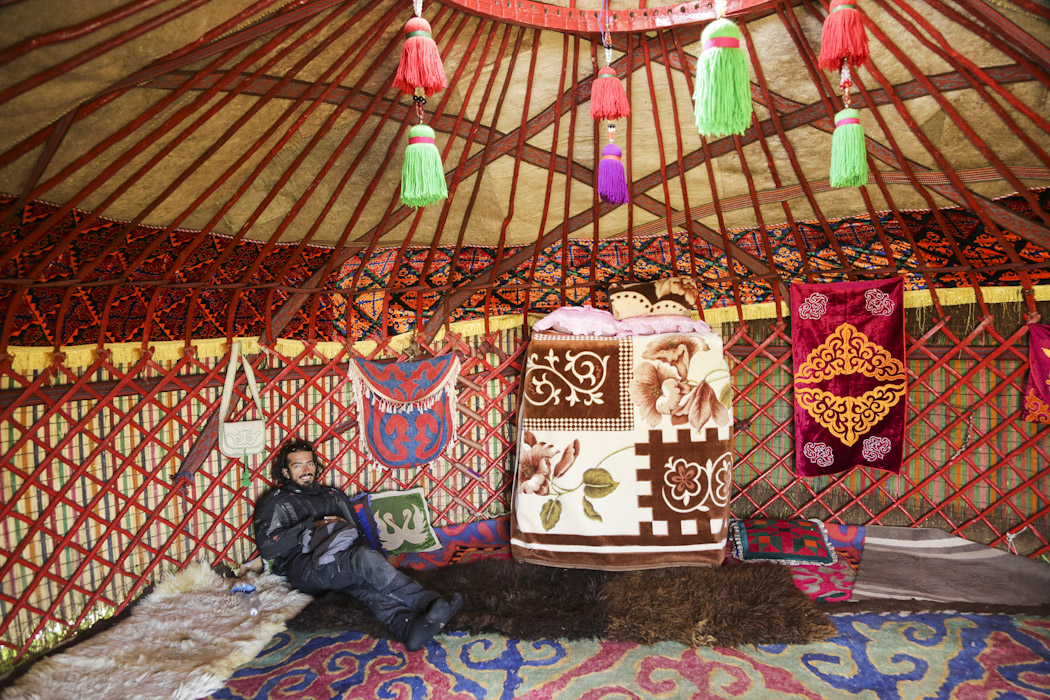
The doors (bosogo) are usually made of wood and some have beautiful carving decorations.
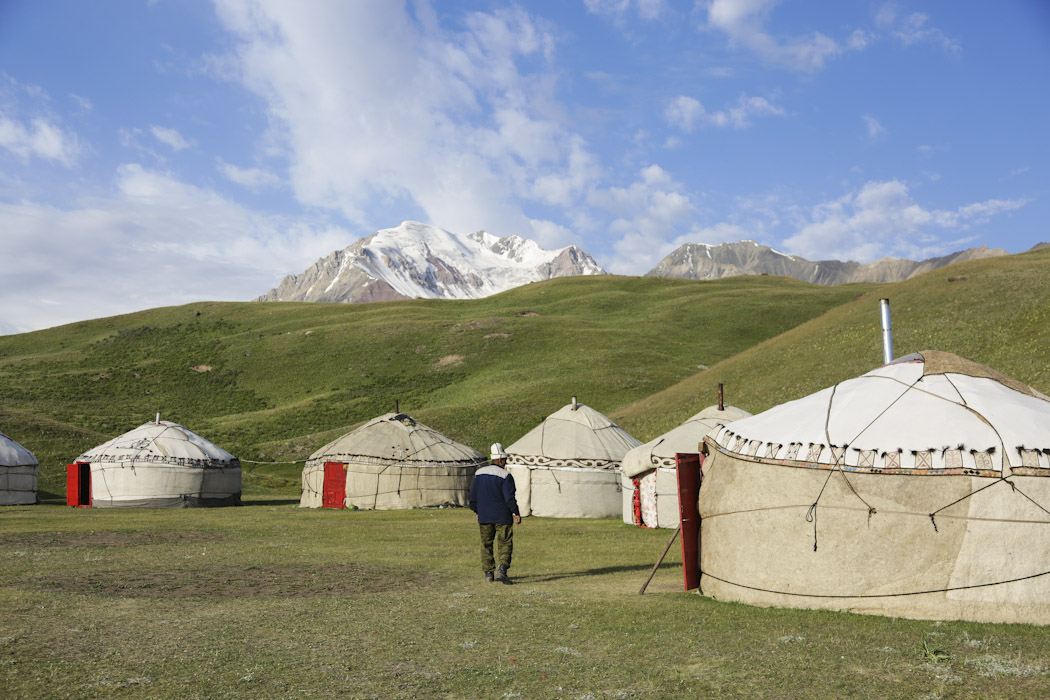


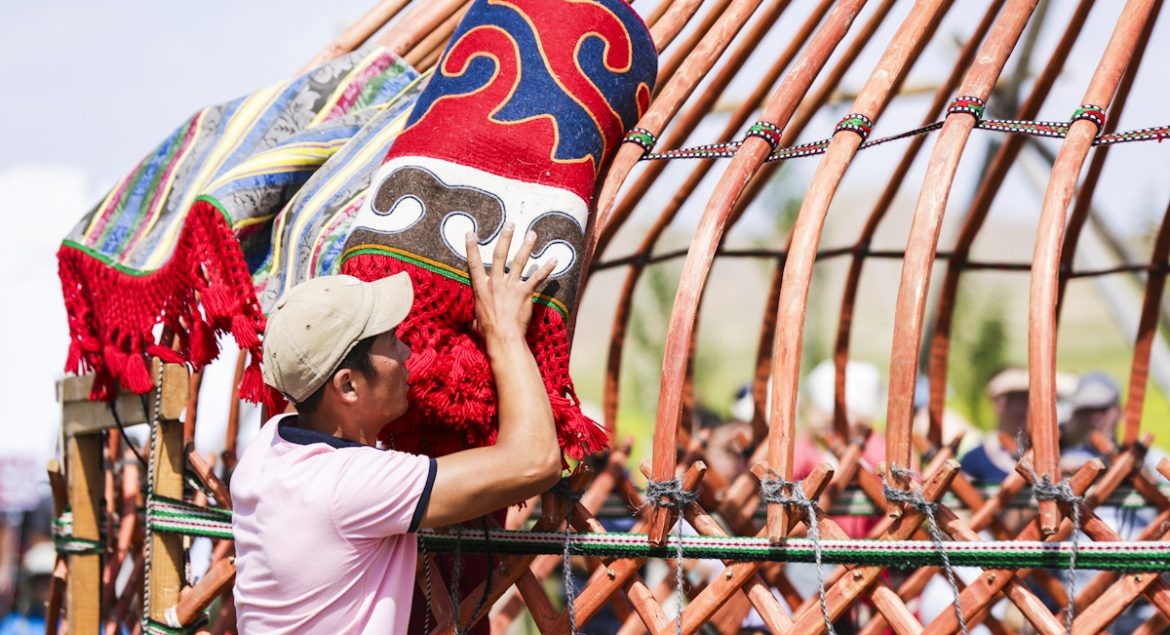

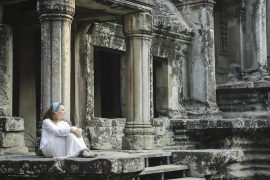

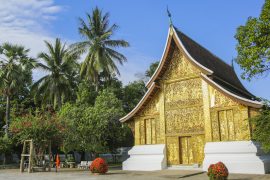
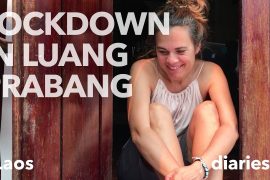



1 Comment